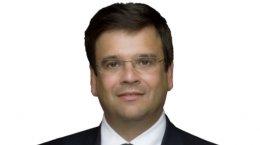Peter Wong, chief executive of HSBC’s Asian businesses, has been showing staff his appreciation. He launched his efforts on Valentine’s Day.
Mr Wong, in post for two years, suffered a media storm late last year over the UK bank’s plans for job cuts in Hong Kong, and HSBC has since faced criticism over the way it has handled the sale or closure of businesses in Japan and Thailand.
He acknowledges, in an interview with the Financial Times, that there has been a communication problem, especially when it came to bad news. Messages from the top seemed to hit a kind of “permafrost†one or two levels down, he says.
So he began a series of meetings with small groups of staff.
“What we want to do is to make sure the staff understand what we’re trying to do and let them ask as many questions as they want,†he says.
“The first one was done on Valentine’s Day...and the original schedule was 5pm to 6pm, but they kept asking questions, they wanted to understand more, and we stayed until they finished. It went to 6.35pm.â€
This renewed emphasis on staff communication is important because, after expanding in Asia during the financial crisis, the bank needs to earn more money from the clients it has.
It wants to cross-sell more products and get each client to do more of their banking business with HSBC, whether they are commercial or retail.
This is vital, as some analysts and investors are questioning the group’s growth prospects.
Anil Agarwal, analyst at Morgan Stanley in Hong Kong, wrote after HSBC’s recent results that the group’s Asian growth seemed to be slowing appreciably.
Its businesses in Hong Kong and the rest of Asia combined saw just 5 per cent growth in operating profits before provisions in the last quarter of 2011 over the year before, or a decline of 2 per cent versus the third quarter.
“Some of the key Asian markets, especially Hong Kong, have started showing signs of growth fatigue,†Mr Agarwal wrote. “We expect that HSBC will find sharp revenue growth in Asia challenging.â€
Others are more sanguine. Barclays Capital analysts believe group revenues only need to grow 2 per cent a year for the bank to hit its return on equity targets in 2013.
The problem for HSBC, though, is that more than half of its operating profits in Asia still come from Hong Kong. Away from that territory, half of its profits growth in the rest of Asia last year came from its Chinese associates.
However, Mr Wong insists that the region is on course with the strategy set two years ago about where HSBC in Asia wanted to grow, and says the bank’s six important Asian markets outside Hong Kong are those producing the fastest profits growth.
They are China, India, Malaysia, Indonesia, Singapore and Australia, where the bank can use its trade finance skills and balance sheet to help companies looking to do more overseas.
“In 2010, we saw that there was a 12-18 month opportunity in terms of the other banks not recovering at that point in time, and then we said, OK, here’s an opportunity to build our market share and build a good business mix,†Mr Wong says.
“We increased our assets by 40 per cent in 2010, and the way we looked at it was that an asset was a lead into a customer where we can cross-sell.â€
He points to the encouraging growth in non-interest income that the group is seeing – the fees and commissions earned from services beyond straight lending – though the bank’s full-year report shows growth rates somewhat less than those for net interest income in Asia.
“What we have achieved is that we have established ourselves as a very energetic bank in Asia Pacific,†he says, adding that part of this is seen in the investment it has put into equity listings and sales business in Hong Kong and China.
By its own version of equity market league tables, it rose from the high teens to the top one or two positions between 2010 and 2011. Mr Wong insists it has profited from this investment.
In the standard Dealogic league tables the FT typically refers to, however, it remains well outside the top 10.
But with Asia having the most competitive and overbanked equity markets, this business is likely to remain one that is a nice extra to offer clients rather than a serious moneymaking operation in its own right.
More News From Financial Times





